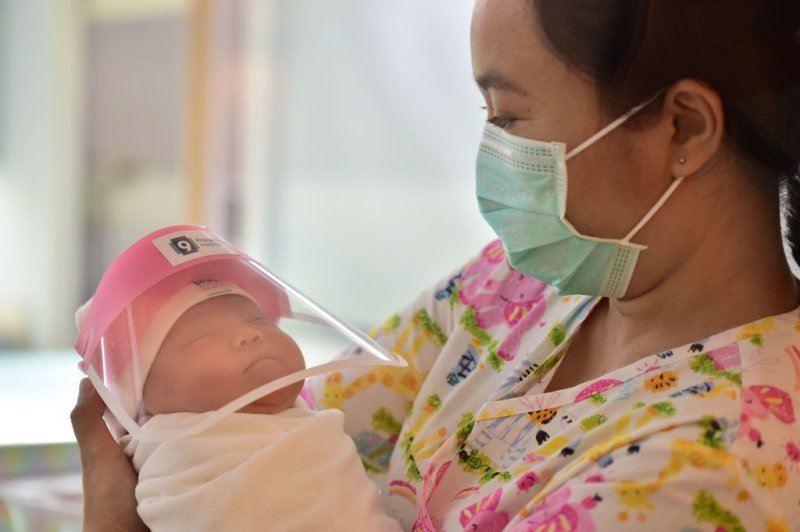- Rukmani Sharma
Source: Time Magazine (Photo by Lillian Suwanrumpha/AFP—Getty Images)
As the current pandemic rages on, there is an increasing realization about its differentiated and unequal social impact. As the epidemiologist and medical historian Frank Snowden writes “….epidemic diseases are not random events that afflict societies capriciously …on the contrary, every society produces its specific vulnerabilities”. And to study them is to understand that society’s structure and fault lines.
[i] Gender is one such ‘vulnerability’.
A recent UNFPA (United Nations Population Fund) report reveals the enormous scale of the impact COVID-19 is having on women as health systems become overloaded, facilities are closed, or are only providing a limited set of services to women and girls. UNFPA expressed an alarming possibility of seven million unwanted pregnancies, in case the lockdown lasts for another six months.
[ii]
Many therefore choose to skip important medical check-ups through fear of contracting the virus. Global supply chain disruptions may also lead to significant shortages of contraceptives.
[iii]
It is well known that upper and middle-class women in metropolitan areas usually have to spend a lot of money on delivery at private nursing homes. These women would not venture to the government hospitals in the city even in pre-COVID-19 times.
[iv] It is also well known that there has been growing medicalization of pregnancy in India. This often cuts across the rural-urban divide. For instance, many women in India are having cesarean sections, far above the 2010 World Health Organization (WHO) guidelines of a recommended level of 10-15%. A report by the ICMR School of Public Health shows that in the last decade or so, the numbers have escalated in many parts of the country.
[v]
The urban middle-class woman, therefore, depends almost entirely on the medical establishment for childbirth. Not surprisingly, therefore, my limited interviews with few such women reveal anxiety, fear, and the rethinking that women are being forced to do during the Pandemic.
I had conducted online interviews with 15 middle class, married women between the age group of 25 to 40. The women were located in different urban spaces like Delhi, Kolkata, Bangalore, Pune, Guwahati, Siliguri, Kalimpong, Mumbai, and Ranchi. Their common context was their urban and middle-class location.
Some of these women deferred their childbirth plan in fear of getting infected by COVID-19. Today, healthcare institutions have become a site of high-risk contagion sources, and women avoid conception because they want to avoid going to healthcare institutions. Conception would entail routine check-ups apart from delivery. Let me share some of the responses of these women. One does not intend to generalize from these interviews. But what they do show is the fear and anxiety apart from the beginnings of rethinking on birth practices.
Mamta
[vi], age 32, a working woman in Mumbai, had planned childbirth with caesarean as an option of delivery. She terminated her plan due to her fear of getting infected at the hospital. As a working woman, she felt that one has to think and plan childbirth. One needs to research all details related to pregnancy, balance work with home. The anxiety and safety measure during COVID-19 did not allow her to pursue her childbirth.
Priya, age 30, a dedicated PhD scholar chose to be extra cautious to avoid any chance of pregnancy. She also complained of a shortage of contraceptives in the market which added to her worries. She wanted to limit her visit to hospitals and also showed interest in home remedies, But she felt that if she conceives, she would still prefer to give birth at the hospital.
Anumeha, age 28, a resident of Siliguri felt likewise. She had planned her pregnancy before the pandemic. The birth of a child in her extended family in the times of lockdown, however, made her change her decision. The trauma of her family members led to this. She was also among the interviewed women who hoarded up birth control pills to avoid any chance of pregnancy. Significantly such experience made her rethink possibilities of giving birth at home. There were other women too, for whom virtual consultation from a doctor worked.
Apart from these women whom I interviewed, many others mentioned in their blogs and social media videos how sad it was for them to give birth amidst the lockdown and COVID-19. While some seek to delay having a baby, those already expectant do not have an option. Poonam Sharma Maithis from the USA was one such woman who describes how she did not touch the face of the child or kiss her forehead until her reports for COVID-19 came negative.
[vii]
Giving birth during a pandemic has been traumatic for many. Nikhat’s who was expecting her first child was refused an appointment with her regular gynaecologist as his institution lacked COVID -19 testing facility. Her labour turned a nightmare when her water broke and no ambulance could still reach her. She finally reached the nearby public hospital by two-wheeler. To avoid infection, doctors suggested caesarean birth but fortunately, she had a successful normal delivery. This came as a relief for Nikhat.
As the experiences of these women show, giving birth during COVID-19 has been a challenging task. Pregnancy and childbirth have been added vulnerabilities on women and their bodies during this pandemic.
[vi] Names of the respondents
have been changed to maintain their privacy.
Rukmani Sharma is a PhD student in the Centre for the Study of Social Systems (CSSS), School of Social Sciences. Jawaharlal Nehru University (JNU) New Delhi. She is also an Assistant Professor in the Department of Sociology, Ghoshpukur College, North Bengal University, (NBU), Siliguri, West Bengal.

Comments
Post a Comment